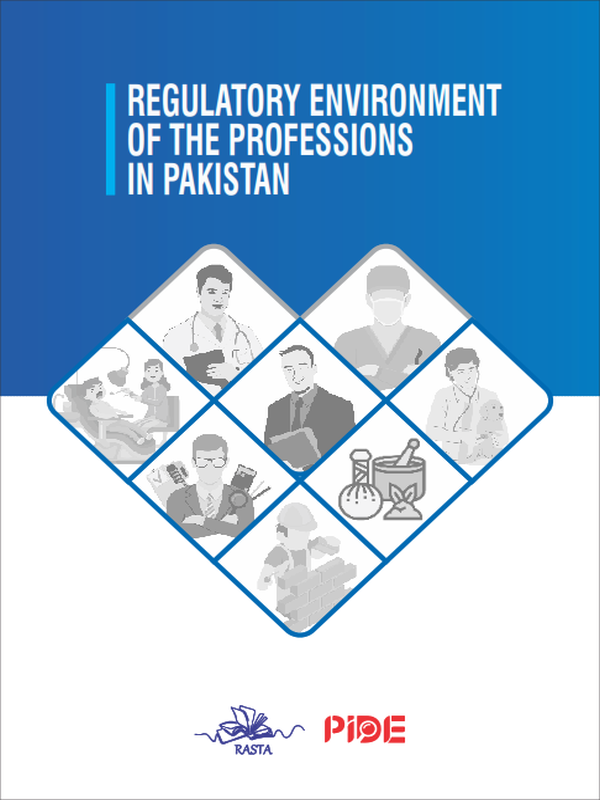Regulatory Environment Of The Professions In Pakistan
INTRODUCTION:
WHY STUDY THE PROFESSIONS?
Background of the Study
Professional services may be defined as services provided by professionals who are :
(i) compulsorily regulated by law and
(ii) whose regulator is based upon the principle of peer-to-peer regulation. These service – such as legal and healthcare services – are an important part of the overall market for professional services, both in terms of the total economic value of this market as well as in terms of the significance of these services for overall societal well-being.
Many professions in Pakistan are presently going through serious crises. The issue has recently gained traction in national press on account of an organized attack launched on Chief Justice Islamabad High Court by a sizable group of lawyers in Islamabad led by a serving member of the Islamabad Bar Council, the professional services regulator. Engineering consulting firms which prepared the feasibility study and design of the Rawalpindi Ring Road scandal have been accused of having invested in the project’s real estate, thus creating a serious conflict of interest. Physicians are regularly accused of prescribing unnecessary diagnostic tests and expensive drugs to patients because of monetary incentives offered to them by pharmaceutical companies and diagnostic labs. Even the erstwhile highly reputed chartered accountants are being accused of figure-fudging in public companies in collusion with corporate managers.
While the professions–especially law and medicine–are often subject to criticism on media, the reform debate remains marred by moralistic prescriptions, knee-jerk reactions and generalizations. Legal and demographic facts are conspicuously missing when people talk about the professions. There’s no mention of the self-regulatory structure embedded in the law which may be an explanatory variable for some of the issue; nor is there any mention of the high growth rate of some of the professions which could perhaps explain deteriorating standards.
A serious and informed debate about the “regulatory structure” of the professions is the need of the hour because, like other rational market agents, the behavior of “professionals” is not determined entirely by the values they espouse; the behavior of professionals is also determined, to a very great extent, by the regulatory environment in which they operate. The cost and quality of professional services in any country has a direct relationship with the regulatory environment of the professions. Till the me of wring of the research report, there is not a single review or report which attempts to take a holistic view of the regulatory structure of the professions in Pakistan. This is a a structure which rests upon almost one dozen primary statutes and even more voluminous delegated legislation. The history, structure, powers and behaviour of each of the regulators – Bar Councils, Nursing Council, Engineering Council etc. – is unique; but there are also some commonalities. Effecve public critique and reform of the professions is not possible without taking stock of this complex regulatory structure.
Objectives of the Study
This study aims to provide, firstly, an accurate description of the law which govern the professions and set up their regulatory structures. After listing the laws down, I also compare them with each other.
Second, this study puts together, for the first me ever, some basic demographics of the professions – for instance, the total number of lawyers, doctors and auditors etc., their gender breakdowns and, in some case, their growth rates too.
Finally, based on the study, I have charted out an agenda for policy debate which is informed by legal and demographic realities, not just anecdotes and personal whims.
This is primarily a descriptive piece rather than a prescriptive one. However, the aim of this descriptive research is to provide a basis for having a more informed debate on prescriptions for reform of the professional regulators. This study is a must read for any political economist, political activist, politician, journalist, judge, lawyer or other interested person who wishes to embark upon the much- needed project of reforming the professions in Pakistan.
Volume II of the study is a compilation of the relevant laws. It is meant to help other researchers who might be interested in carrying out a comparative study of this sort.
For Full Text Download PDF




